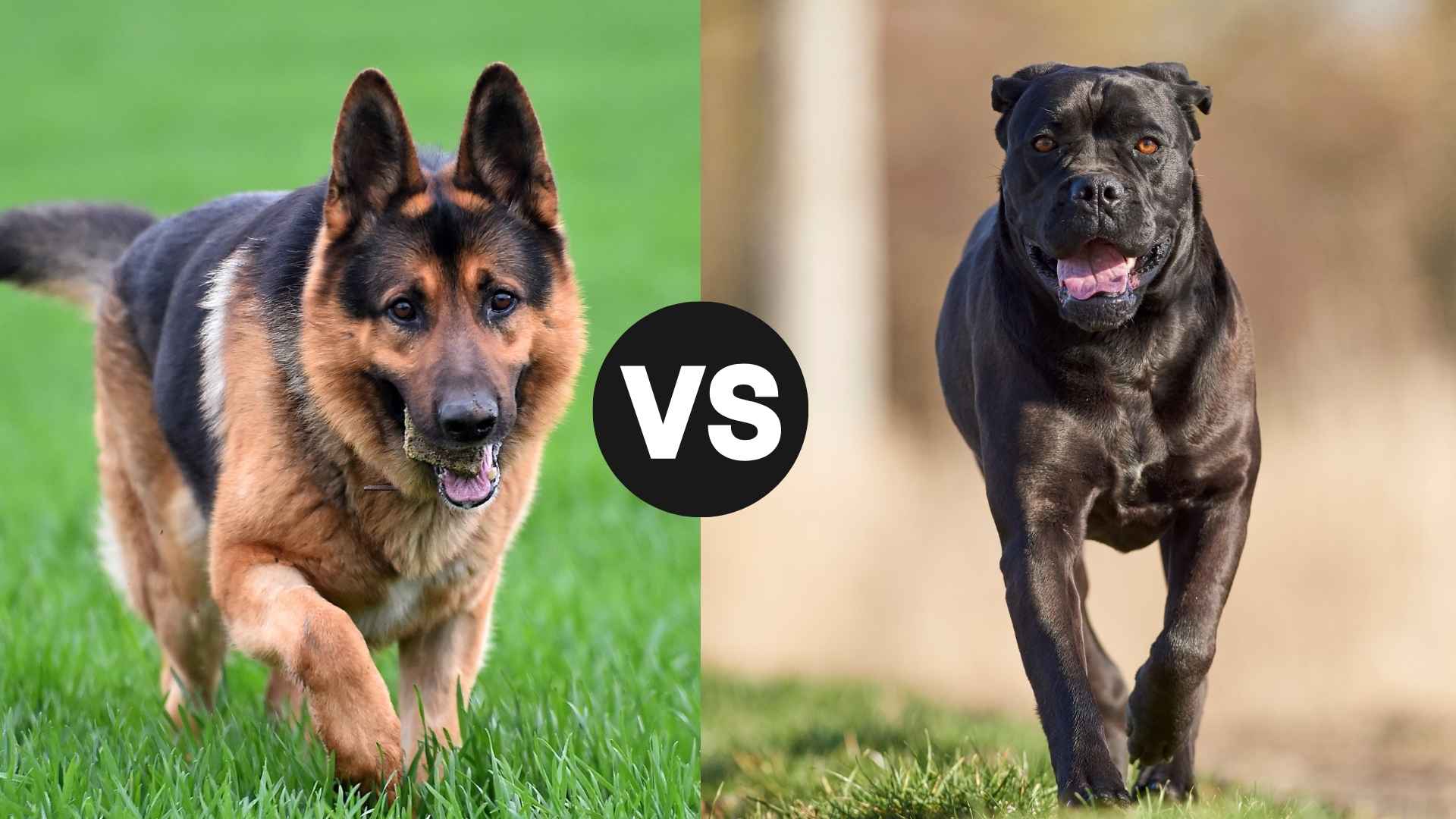Choosing between a German Shepherd and a Cane Corso isn’t just a decision—it’s a commitment to a lifestyle. These two powerhouse breeds are bold, loyal, and jaw-droppingly gorgeous, but they’re also different in all the ways that matter: energy, personality, protection style, and care needs.
Both breeds have fierce followings—and for good reason. They’re iconic protectors and loyal companions who look like they walked off a medieval battlefield or a high-security compound. But just because they both bring the “intimidating bodyguard” energy doesn’t mean they’ll vibe with the same kind of household.
If you’re trying to decide which one fits your world—your weekend routine, your training style, your vibe—this comparison will break it all down without the fluff (unless you count Shepherd fur).
We’ll explore personality traits, trainability levels, guardian instincts, grooming demands, and how long they’ll be by your side. Because yes, choosing between these two is kind of like picking between a tactical genius and a Roman gladiator.
Ready for the ultimate face-off? Let’s dive into German Shepherd vs Cane Corso, starting with what really sets them apart—and what makes them both irresistible.
German Shepherd vs. Cane Corso: Side-by-Side Comparison
|
Category |
German Shepherd |
Cane Corso |
|---|---|---|
|
Origin |
Germany – herding & working breed |
Italy – guardian & war dog heritage |
|
Size |
50–90 lbs; 22–26 inches tall |
90–120+ lbs; 23.5–27.5 inches tall |
|
Appearance |
Lean, athletic, alert stance |
Muscular, broad-chested, intimidating presence |
|
Temperament |
Loyal, eager-to-please, emotionally intuitive |
Loyal, calm, confident, reserved |
|
Socialization |
Generally friendly with proper training |
Naturally aloof; needs early socialization |
|
Trainability |
Extremely high – ranks among the top 3 most intelligent breeds |
High but independent – needs a firm, experienced handler |
|
Working Aptitude |
Excels in search & rescue, police work, service dog roles |
Excels in guarding, protection, and personal security |
|
Guarding Style |
Alert, responsive, barks to warn |
Quiet, watchful, and reacts only when necessary |
|
Exercise Needs |
High – needs both physical & mental stimulation daily |
Moderate to high – needs structured walks and job-like tasks |
|
Grooming |
Heavy shedder; needs brushing 2–3x/week |
Low to moderate shedding; weekly brushing needed |
|
Health Concerns |
Hip/elbow dysplasia, degenerative myelopathy, digestive issues |
Hip dysplasia, bloat, heart conditions (e.g., cardiomyopathy) |
|
Lifespan |
9–13 years |
9–12 years |
|
Best For |
Active families, working roles, and obedience-focused homes |
Experienced owners, calm but structured homes |
|
Known For |
Intelligence, versatility, and emotional connection |
Strength, stoic loyalty, natural deterrent |
|
Training Style |
Reward-based, thrives on praise, and mental work |
Needs consistent rules, early socialization, and respect |
|
Drool Factor |
Low |
Moderate to high |
German Shepherd vs. Cane Corso
Let’s start with the basics: both breeds are confident, powerful, and deeply devoted, but the energy they bring into your home is very different.
The German Shepherd is the overachiever of the dog world—intensely focused, endlessly trainable, and fiercely loyal. They’re working dogs through and through, originally bred in Germany to herd sheep and now best known for their roles in police, military, and service work.
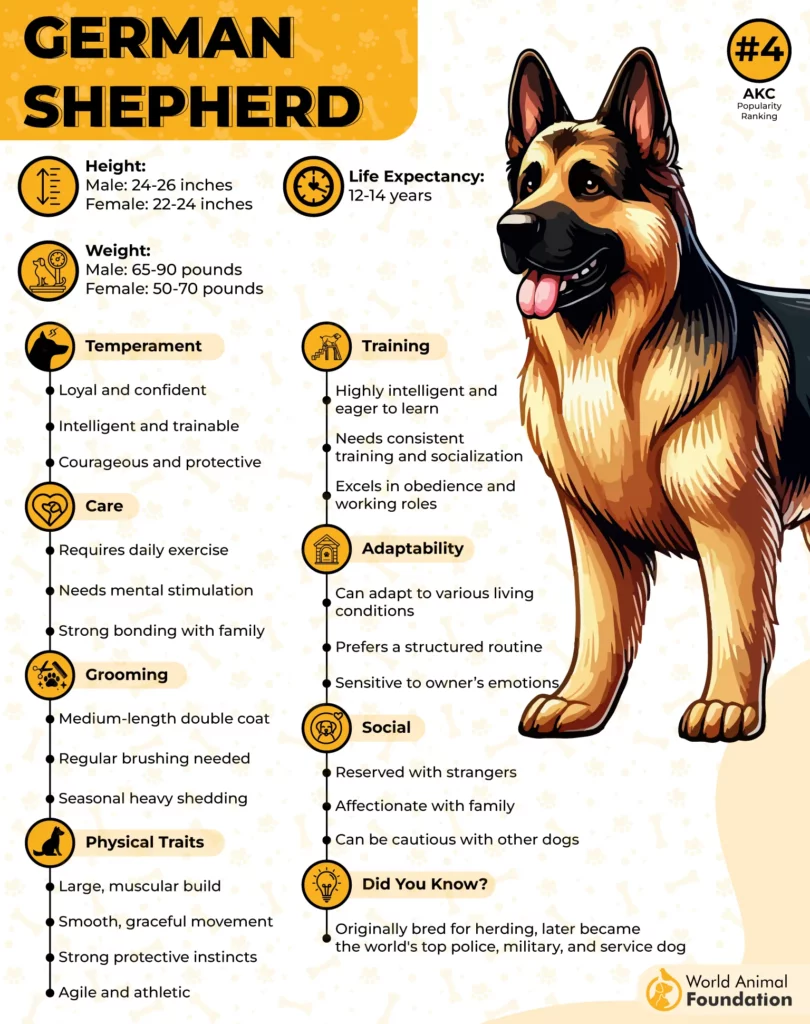
The German Shepherd’s temperament and energy are surely impressive!
The Cane Corso, on the other hand, is Italy’s contribution to canine muscle and majesty. With roots tracing back to ancient Roman war dogs, they’re protective, dignified, and naturally intimidating, yet surprisingly affectionate with their inner circle.
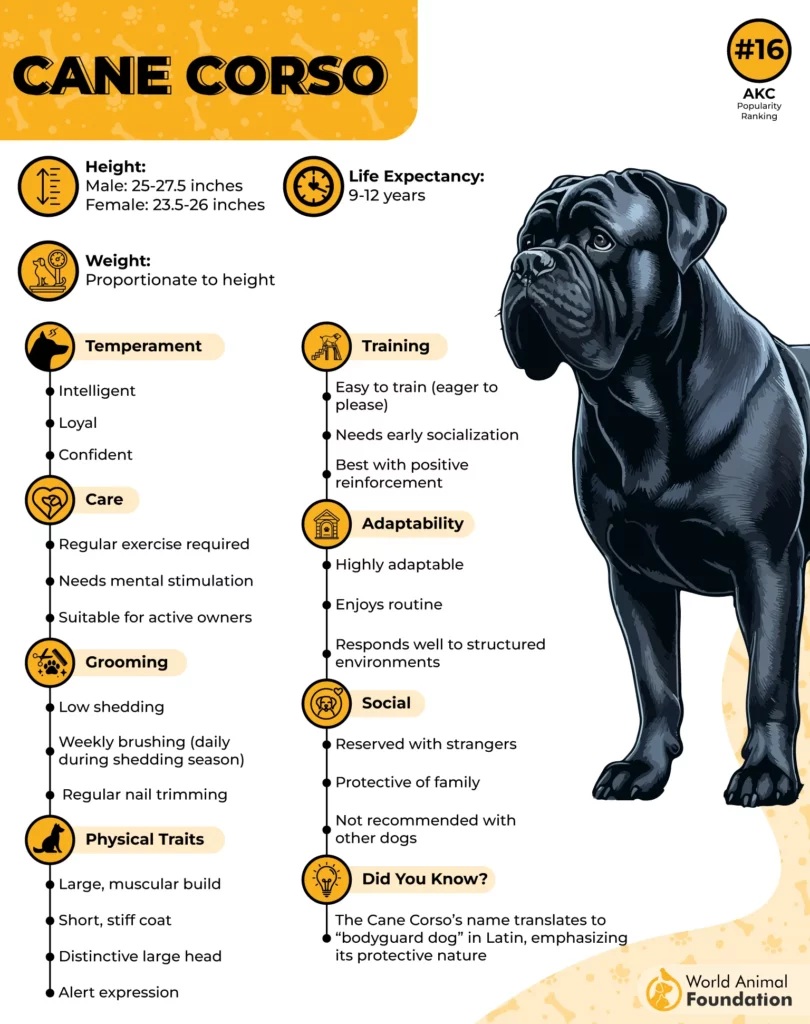
While the Shepherd leans into sharp intelligence and task-driven routines, the Corso brings more of a “strong and silent” protector vibe—low-key chill with family but ready to throw down when needed.
German Shepherds thrive on purpose, play, and praise. Cane Corsos, while also trainable, are a bit more independent and require firm, confident leadership—not for the faint of heart or first-time dog parents.
German Shepherd vs. Cane Corso: Personality and Devotion
When it comes to personality, both breeds bring loyalty in spades—but how they express that loyalty differs.
According to Pet Plan, German Shepherds are emotionally sensitive, eager to please, and always watching their humans for cues. They’re the type of dog that will follow you from room to room and act like a four-legged life coach. Their devotion is energetic, sometimes clingy, and always 100% locked in.
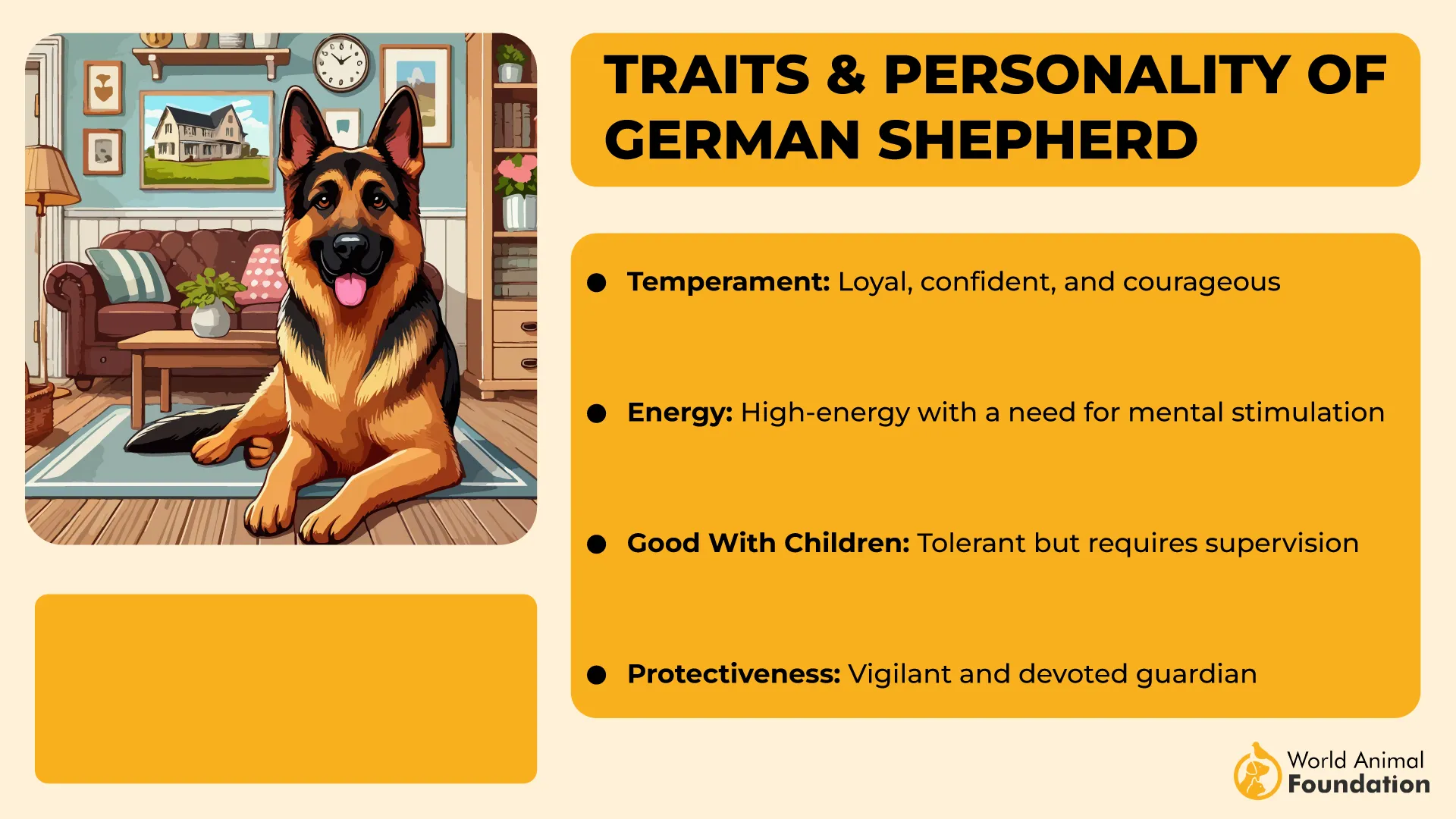
They’ve been used in disaster zones, avalanche search and rescue work, missing person cases, and even 9/11 recovery efforts.
The cane corso temperament is true-blue!
They are equally loyal, but more low-key about it. These canine companions bond deeply, but they don’t need to be in your face about it all day. They’re the strong, silent type—content to lay at your feet and keep one eye open for anything suspicious. Corsos aren’t emotionally needy, but they’re deeply protective of their people.
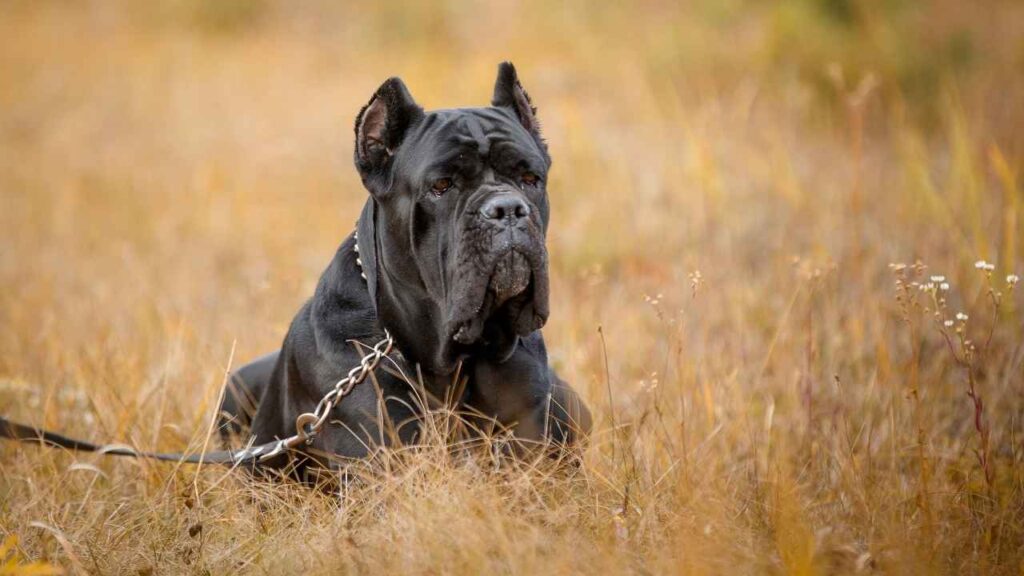
Shepherds tend to be more social with strangers (with proper training), while Corsos are naturally more reserved—even aloof. Not aggressive without reason, but very much a “you have to earn my trust” breed.
If you want a companion that mirrors your emotions and thrives on affection and structure, the German Shepherd brings that ride-or-die energy. If you prefer a stoic, noble guardian who’s calm in the chaos, the Cane Corso is your strong, silent soulmate.
German Shepherd vs. Cane Corso: Ease of Training
If your ideal dog is one that picks up cues faster than your co-workers in a Zoom call, German Shepherds are basically the gold standard at your training sessions.
They’re famous for their trainability and intelligence, often ranking as one of the world’s top three most intelligent dog breeds. They love structure, thrive in routines, and need mental stimulation like oxygen. Give them a job, and they’ll own it.
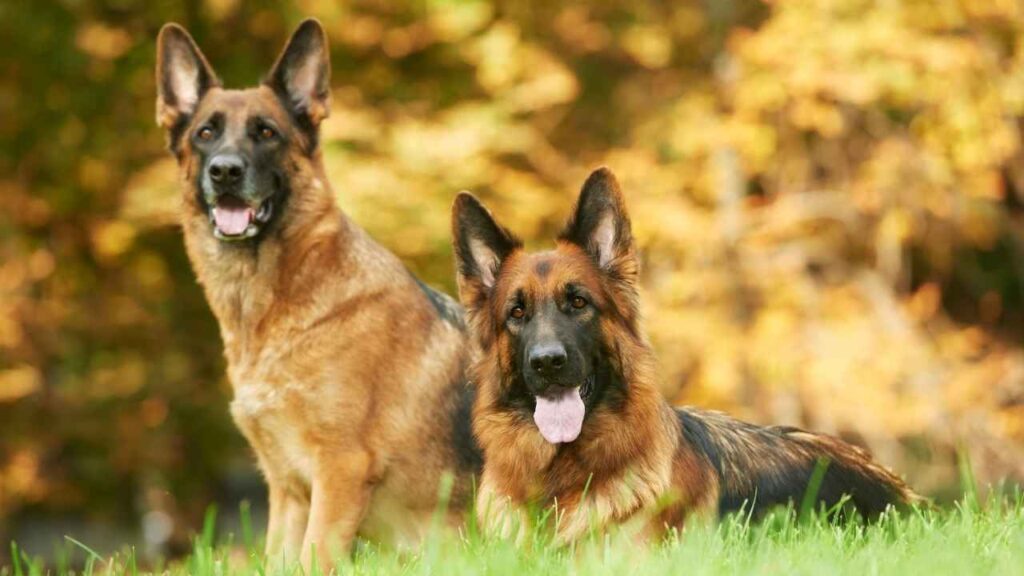
AKC mentions Cane Corsos are also highly trainable, but with a caveat—they’re independent thinkers. While they’re brilliant in their own right, they won’t perform tricks just to impress. They need to respect you before they listen, so proper socialization, consistent training, and fair leadership are non-negotiable.
Corsos do best with experienced handlers who set clear boundaries early on. If you’re too passive or inconsistent, they’ll take the lead—and that’s not a position you want a 120-pound watchdog taking over.
Both dogs excel in obedience, protection work, and advanced training, but their learning style is different. Think of the Shepherd as a gifted student who loves homework. The Corso? More like the street-smart kid who knows the rules… but needs a reason to follow them.
German Shepherd vs. Cane Corso: Guarding Instincts
Let’s be clear: both of these breeds were born to guard, but they do it in their own unique way.
Let’s be honest: appearance matters in the protection game—and these dogs bring serious “don’t even try it” energy.
German Shepherds look lean, alert, and capable—especially when they’re focused.
Cane Corsos are intimidation goals: massive heads, broad chests, and a confident, steady stance. People think twice before approaching.
And it’s not just for show—both breeds have the strength, speed, and bite force to back up their bark (if ever needed).
German Shepherds are watchful, responsive, and precise, as PDSA mentions. They’re quick to alert you to anything unusual and will leap into action if needed, but they’re also trainable enough to discern threat vs. noise, making them great urban protectors.
Cane Corsos, on the other hand, bring that don’t-mess-with-us presence just by existing. Their intimidating appearance alone is a deterrent, and they’re naturally more suspicious of outsiders.
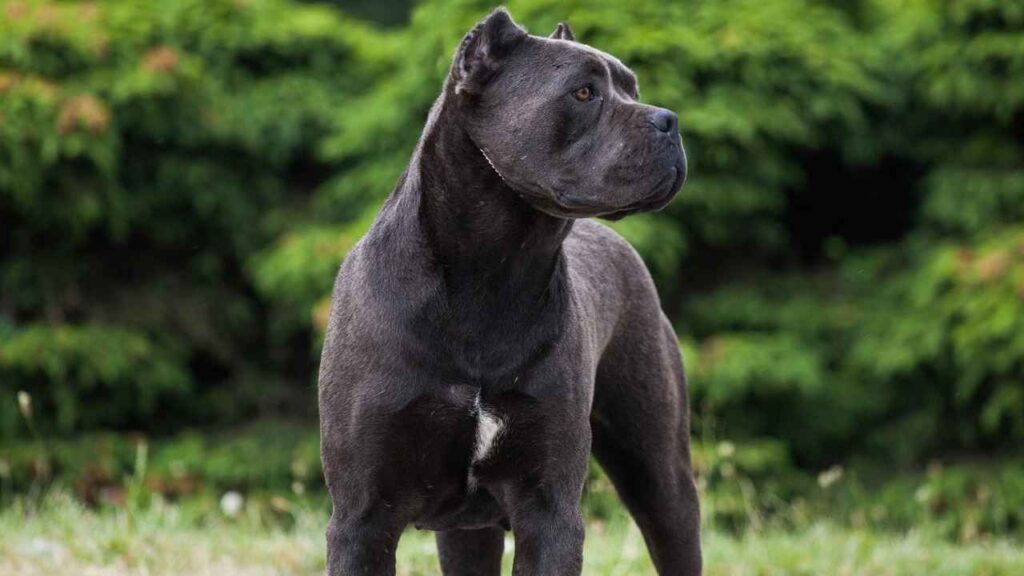
While Shepherds are active patrol-style guardians with natural protective instincts, Corsos are more of the quiet enforcers—you won’t hear much until it’s go time.
Corsos have a strong territorial instinct and often won’t tolerate strangers near their home or family unless properly introduced. Socialization is critical for Corsos to ensure confidence without fear-based aggression.
German Shepherd vs. Cane Corso: Care Requirements
Here’s where your vacuum might want a say in your decision.
German Shepherds are heavy shedders, especially during spring and fall. Their double coat needs regular brushing (at least 2–3 times/week) to stay clean and healthy. Poorly bred dogs are prone to skin and hip problems and need a diet rich in joint and coat support.
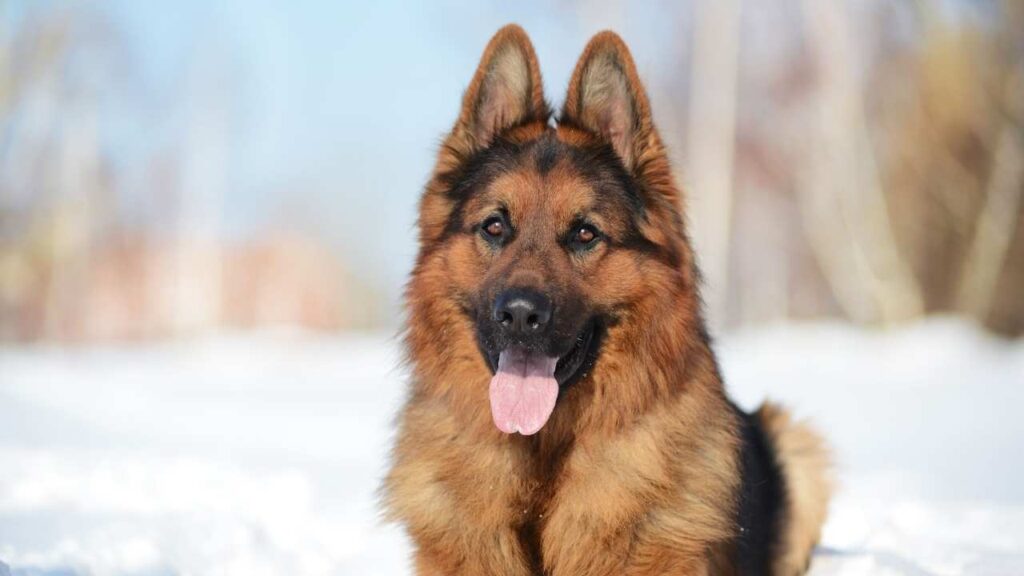
Cane Corsos, while also short-haired, shed less visibly but still need weekly brushing to manage dander and maintain their glossy coat. Their skin is tight and sleek, so grooming is lower maintenance, but don’t let that fool you into skipping it.
Exercise-wise, both breeds need daily stimulation. Shepherds need mental AND physical workouts, or they’ll get destructive. They love fetch, agility, obedience drills, and structured walks.
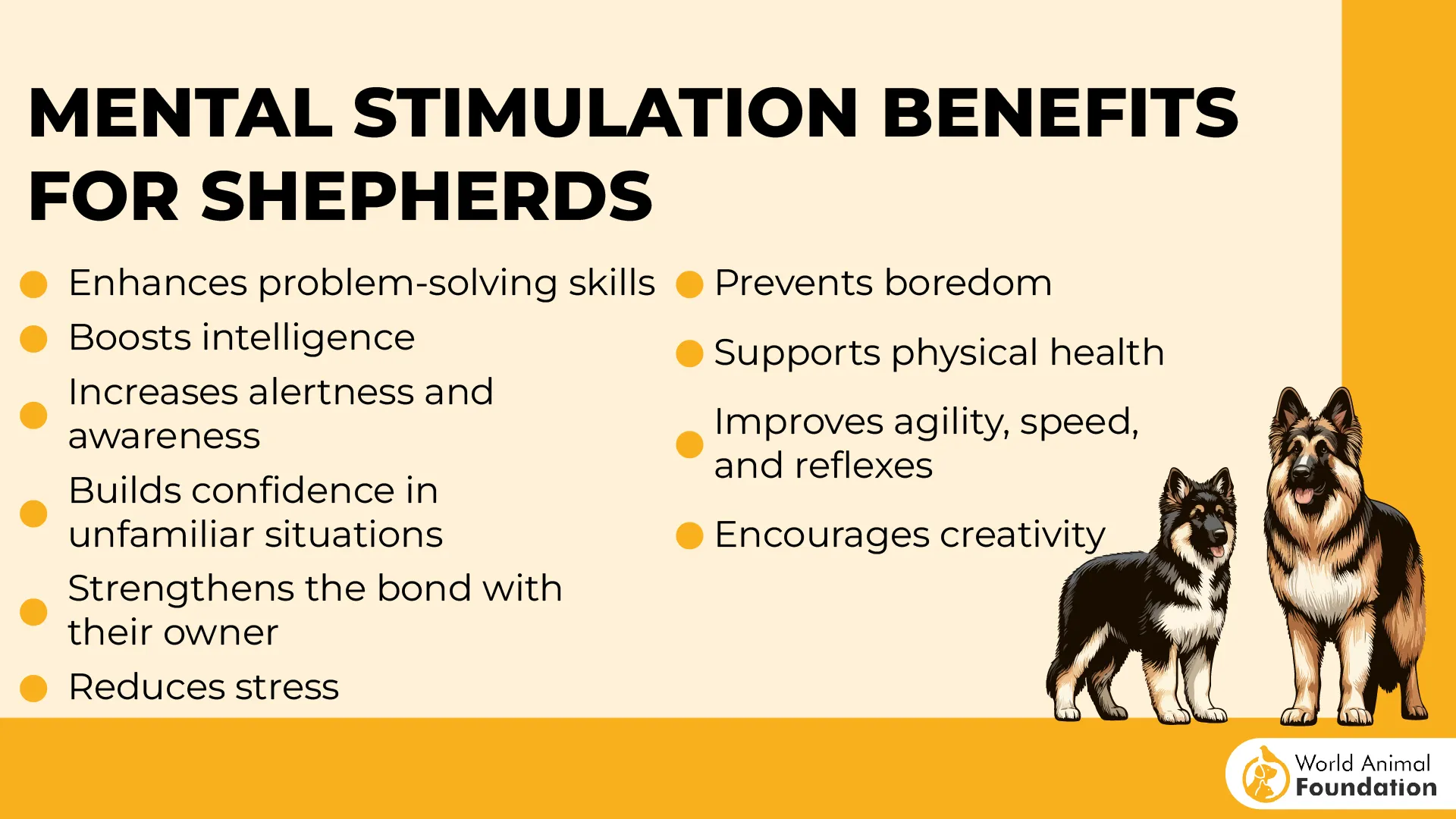
Corsos, while more chill indoors, still need strong walks and regular engagement. They’re big and muscular, so letting them get bored can lead to pushy behavior or anxiety.
Emotional health matters as much as physical health, especially for these loyal, people-focused breeds. German Shepherds are sensitive and intuitive, so yelling or chaotic homes can wear them down emotionally.
Britannica claims Corsos are calm but protective and thrive when they know their role in the home. Give them structure, affection, and consistency. Keep their routines predictable, avoid harsh punishment-based training, and make sure they feel secure, loved, and mentally fulfilled.
Less stress = stronger immune system, better behavior, and longer, happier years.
Both breeds need early training, socialization, and clear rules, but if you want slightly less brushing in your life, the Corso wins that round.
German Shepherd vs. Cane Corso: Expected Lifespan
Giant breeds often mean shorter lifespans, but here’s how these two measure up.
Purina claims German Shepherds generally live around 9 to 13 years, with good care and healthy breeding lines. They can develop hip and elbow dysplasia, degenerative myelopathy, and digestive issues, so vet monitoring and preventive care are key.
Cane Corsos average 9 to 12 years, but some make it to 13+ with excellent care. Their biggest risks are hip dysplasia, heart problems (like cardiomyopathy), and bloat. Because of their large size, keeping them lean and active is critical.
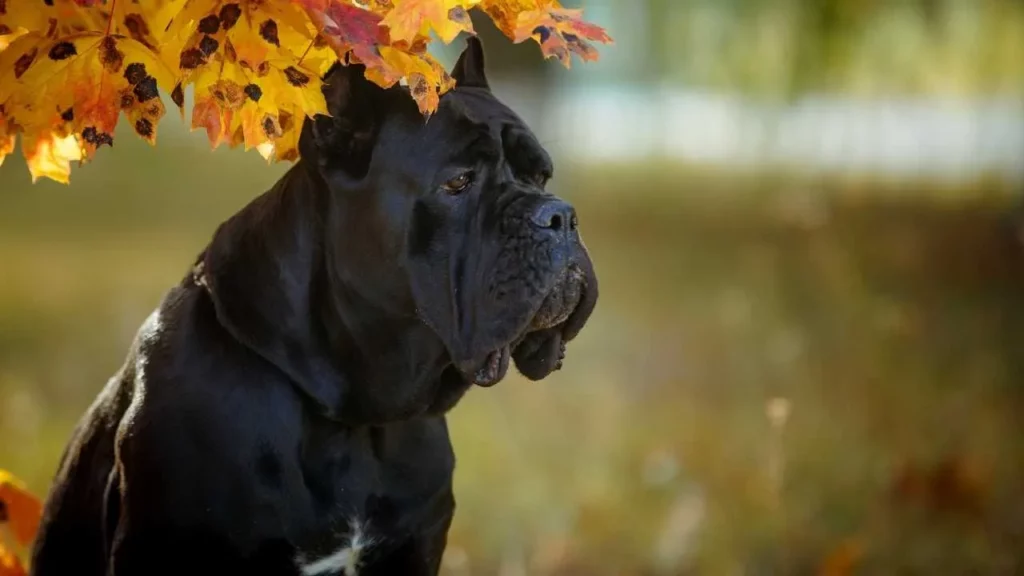
Both breeds do best with:
Quality food formulated for large breeds
Joint supplements (especially starting young)
Consistent vet checkups
A calm, structured home environment
Preventive care = longer life.
Stay ahead of potential health issues with routine vet visits (at least annually, or every 6 months for seniors).
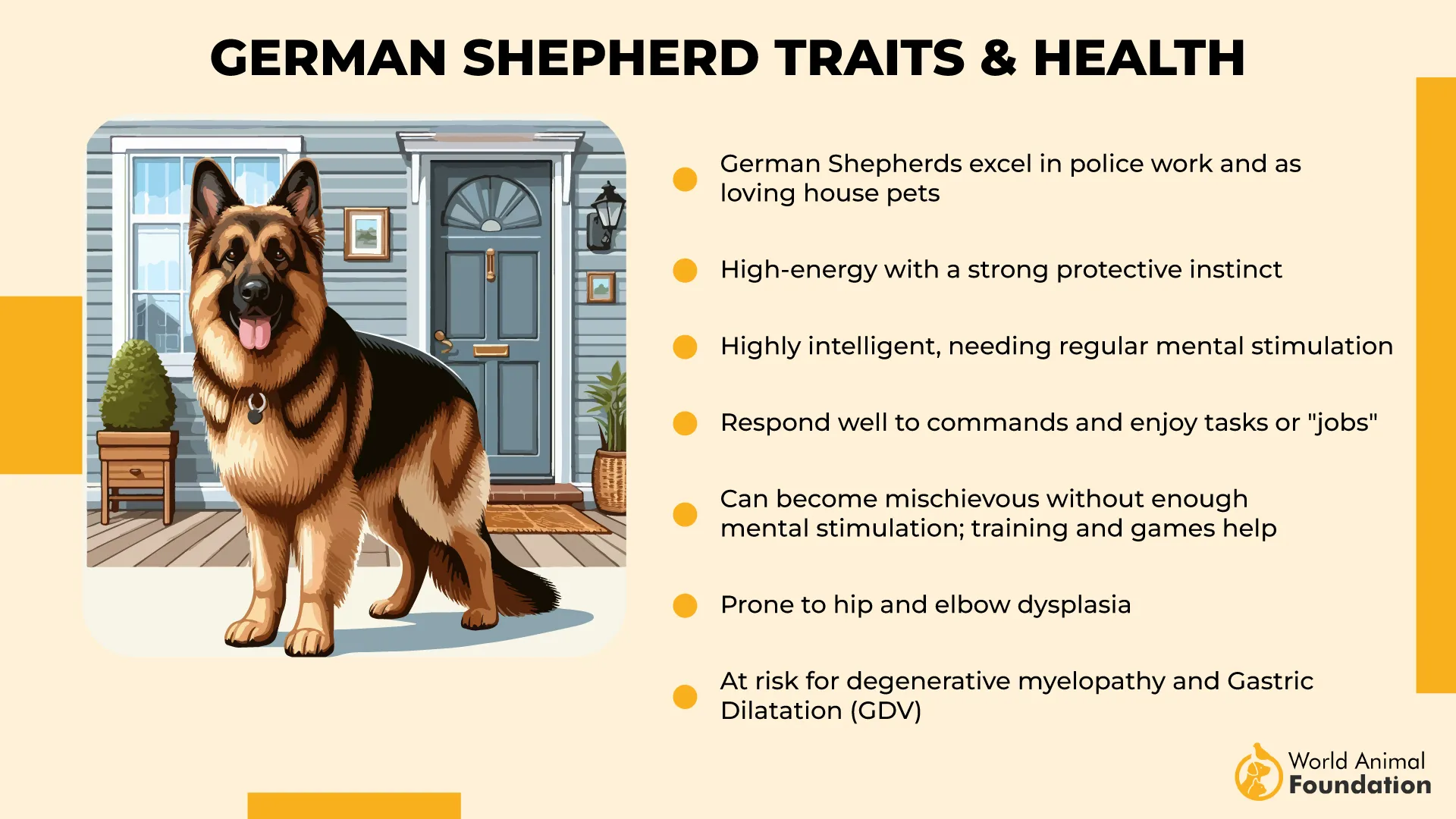
German Shepherds are prone to hip/elbow dysplasia, digestive issues, and degenerative myelopathy.
Cane Corsos often face hip dysplasia, heart disease (like dilated cardiomyopathy), and bloat.
Ask your vet about early genetic testing, especially if your pup is from a breeder. Knowing what to expect helps with early intervention.
Early detection saves lives—and can extend them, too.
No matter which breed you choose, their time with you is precious, and investing in health from day one pays off in extra years of love, loyalty, and companionship.
Conclusion
When it comes to German Shepherd vs Cane Corso, there’s no wrong answer—just the right fit for you. These aren’t just pets; they’re partners, protectors, and loyal shadows who’ll change your life.
Choose the German Shepherd if you want a sharp, sensitive sidekick who lives to please, learns fast, and thrives in structure. They’re great for active homes, families, and people who love to be hands-on with training and adventure.
Go for the Cane Corso if you’re ready for a majestic, powerful guardian with a calm presence and deep loyalty. They’re ideal for confident, experienced owners who want quiet protection and emotional depth from their dogs


